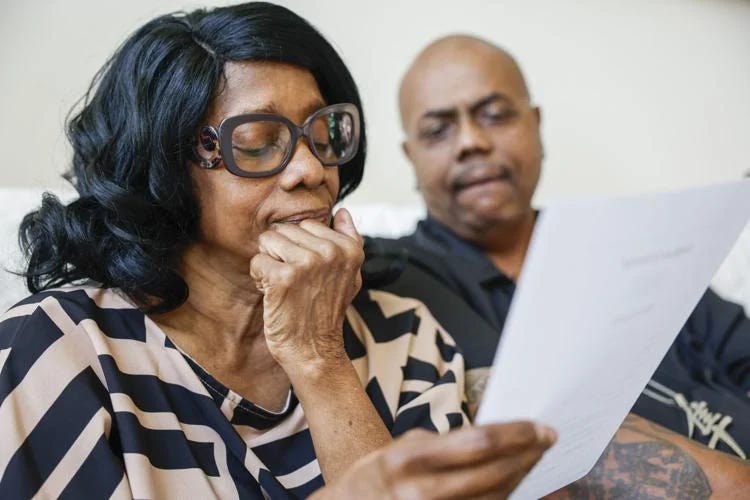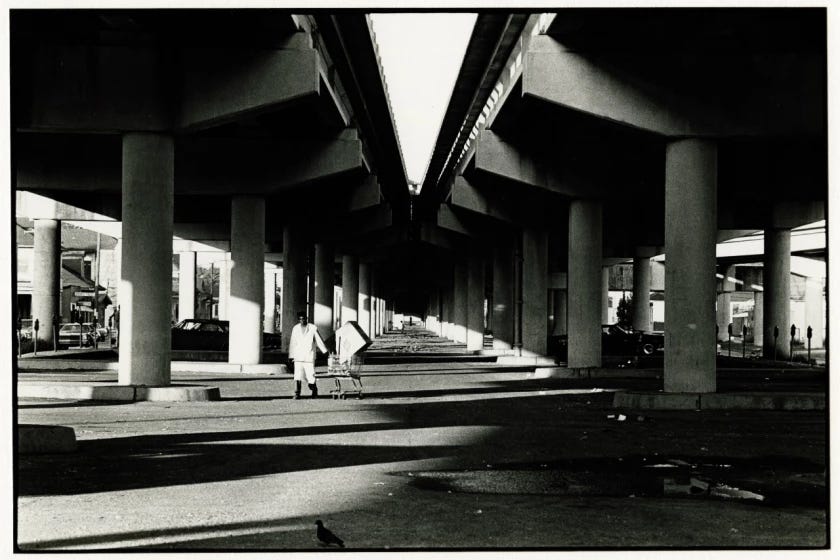Pope Leo XIV’s Black Ancestors Passed as White: New Details Exposed
As genealogists uncover Pope Leo XIV's Black Creole ancestry in New Orleans, his heritage reveals how America's racial passing system destroyed millions of families.
Cardinal Robert Francis Prevost became Pope Leo XIV on May 8, 2025, making headlines as the first American to hold the papacy. But within hours, genealogist Jari Honora dropped a bombshell that would stir mixed reactions from many Americans. The pope's maternal grandparents, Joseph Martinez and Louise Baquié, were listed as "Black" or "mulatto" in New Orleans census records from 1900. By 1920, after moving to Chicago, the same family was living as white.
Some said this didn’t matter. Others celebrated the first Pope with confirmed Black ancestry.
Either way, this revelation is a window into America's most brutal family-destroying machine, the system of racial passing that shattered millions of Black families and continues to shape our understanding of race today.
I'm fighting to document stories like the Pope's family history before they're dismissed as "ancient history" or erased entirely, and I need your help!
With no corporate backing or wealthy sponsors, this work depends entirely on readers like you.
If everyone reading this became a paid subscriber, I could investigate these hidden American stories full-time, but right now less than 4% of my 27,000 followers are paid subscribers.
If you believe in journalism that uncovers the family secrets America tried to bury, please consider a paid subscription today!
How One Family Split Along Racial Lines
Ellen Dionne Alverez, 77, grew up Black in New Orleans' 7th Ward, the same neighborhood where Pope Leo's grandparents lived in 1900. Malcolm Moore, 70, grew up white just five miles away in Broadmoor. They're both the pope's second cousins once removed. They had no idea the other existed until a genealogist connected the dots this year.
This is the legacy of "passé blanc", the French Creole term for crossing the color line. Under Jim Crow segregation, people who could pass for white were faced with an impossible choice: abandon their family and community forever, or accept a lifetime of legal and economic discrimination.
It meant being forced to leave home and cut ties with family and friends. But for those who could pass successfully, it also meant better treatment, more freedom, safety, and greater access to housing and job opportunities.
The pope's family made that devil's bargain. When Louise Baquié and Joseph Martinez moved from New Orleans to Chicago between 1910 and 1920, two of Martinez's three siblings joined them and began identifying as white. But one brother, Michel Martinez, stayed behind. His great-granddaughter is Ellen Alverez.
When Baquié left with her husband, her sister Victoria Baquié also stayed in New Orleans. But she began to pass for white. Her great-grandson is Malcolm Moore.
A single family became two separate lineages when some members crossed the color line, creating relatives who lived parallel lives in different racial worlds.
Birth Certificates and Altered Records
Malcolm Moore's story reveals how deeply this system was embedded in official records. Around 2019, Moore took a DNA test that showed he was 14% African with connections to Cameroon and the Bantu tribe. That's when family secrets started unraveling.
Decades earlier, Moore's brother had tried to marry their Jewish neighbor in the 1960s. Though Moore's brother looked white and was raised white, his birth certificate listed his race as Black. As the wedding approached, his mother had to tell him the truth. Moore's brother and his bride eloped in another state where interracial marriage was legal, then returned to New Orleans for a Jewish ceremony.

When Moore checked his own birth certificate years later, he found that his race had been "blotted out" and was no longer legible. "My mother and my grandmother kept it a family secret and never told any of the children," he said.
The manipulation of official records was a common practice. Birth certificates, society’s most basic identity documents, became tools of family destruction.
Economic Motives Behind Racial Passing
Stanford historian Allyson Hobbs notes that passing was often an economic decision. People made the choice "as a question of their livelihoods… Many families did this... they passed for white."
By 1805, more than half of New Orleans' population was composed of enslaved and free people of color. But legal segregation made that diversity a liability rather than strength. As genealogist Jari Honora explains, crossing the color line was especially common in the early 1900s "as a survival strategy."
In segregated New Orleans, everyone knew people who "crossed the color lines," says Honora. "Back when the buses and street cars were segregated, everyone had friends who would sort of sit in the front and you'd think, 'He shouldn't be sitting up there, we know who she is.' But they did it."
The system was so pervasive that entire communities developed informal networks to help people pass. But it came at an unimaginable cost.
Modern DNA Testing Reveals Family Secrets
Today, commercial DNA testing is exposing these buried family secrets on a massive scale. As one researcher noted, many people discover "there is a rich and never-ending obsession with choosing the identity of others without their consent." Now technology is forcing a reckoning with that history.
Moore said his mother and grandmother had kept in touch with the pope's mother and her sisters, who visited New Orleans several times. He spent time with them in Chicago once as a child. The families maintained careful, limited contact while living in separate racial worlds.
"What does the pope think about us being related? That's my question," Ellen Alverez says. "What does he think of us because we're Afro American?" She plans to write a letter inviting Leo to her home if he ever visits New Orleans.
What Pope Leo’s Story Reveals About Race in America
Pope Leo XIV's elevation to the papacy forces us to confront that America's racial categories were about power, economics, and social control. The same person could be Black in New Orleans and white in Chicago simply by crossing state lines and updating their paperwork.
As Henry Louis Gates Jr. notes, the pope "is America writ small, as it were, in his genome." His ancestors represent "the history of the world over the last 500 years", white and Black, from France, Italy, Spain, Cuba, Canada, Haiti, and the United States.
The saddest truth is that Ellen Alverez and Malcolm Moore grew up just five miles apart in New Orleans in the 1950s and 60s. Both had happy Catholic childhoods, were educated at local Catholic schools, and served in the church. The only difference was the arbitrary line that determined which water fountains they could use.
The elevation of America's first pope with documented Black Creole ancestry is proof that the racial categories that shaped American life for centuries were always a lie. The question isn't whether Pope Leo XIV is Black or white. The question is why these categories deserve to mean anything at all.
But here's the harsh reality: stories like Pope Leo XIV's family are being systematically erased from American consciousness.
Right now, genealogical databases are being restricted, DNA companies are limiting access to historical records, and academic research into racial passing is being defunded as "divisive." The same forces that once forced families to split along racial lines are now working to bury the evidence that it ever happened.
Ellen Alverez and Malcolm Moore's stories are being repeated in thousands of families across America, but we're losing the window to document these connections before the last generation with living memory is gone.
Major universities are quietly shuttering genealogy programs that expose uncomfortable truths about American racial history, and DNA testing companies are changing their policies to make it harder for families to reconnect across racial lines.
The reality is stark: we need independent platforms documenting these buried American stories, resources that can't be defunded when they make people uncomfortable.
Right now, less than 4% of my followers are paid subscribers. What could we accomplish with more support?
🔍 At 5% paid subscribers: I could hire genealogists to trace more split families like Pope Leo's before their records are lost or restricted.
📚 At 10% paid subscribers: I could create a comprehensive database of racial passing cases to preserve these stories for future generations.
👥 At 20% paid subscribers: We could launch a family reconnection project, helping relatives separated by the color line find each other again.
I'm going to be direct: You might think someone else will step up to contribute to this page, but that's exactly what everyone else is thinking, too. This only works if each one of us contributes what we can, which is just the cost of a coffee each month.
This isn't just about keeping a newsletter alive. It's about preserving the evidence of America's devastating family secrets before it's buried again, this time permanently.
Will you help me document the families America tried to destroy?
If you are having trouble upgrading your subscription with the above link, visit historycanthide.substack.com/subscribe
If you prefer a one-time donation, you can "Tip" me on Venmo (TheGenZHistorian) or Cashapp ($kahlilgreene00).
References
Stennett, Desiree. "Pope Leo's New Orleans cousins, one Black and one White, want to reunite family split by race." The Times-Picayune, June 15, 2025.
Thomas, Elizabeth, Alondra Valle, and Emily Chang. "Pope Leo XIV's family tree shows Black roots in New Orleans." ABC News, May 9, 2025
Reimann, Nicholas and Molly Bohannon. "Pope Leo XIV's Brother Confirms Records Showing Family Has Creole, Black Roots." Forbes, May 8, 2025.
Gates Jr., Henry Louis. "Finding the Pope's Roots." The New York Times, June 11, 2025.
McNamee, Kai, Scott Detrow, and Tinbete Ermyas. "The search into Pope Leo's family roots." NPR All Things Considered, June 16, 2025.
Bates, Karen Grigsby. "'A Chosen Exile': Black People Passing In White America." NPR Code Switch, October 7, 2014.
Gregorchik, Vanessa. "Shades of Complexity: A History of Racial Passing." Literature and Digital Diversity Archive, Northeastern University, 2017.











"The question is why these categories deserve to mean anything at all." This is the most important line in the entire article. Humans are obsessed with being able to check boxes on a variety of characteristics (race, gender, sexual orientation, religion, etc), and that Either/Or thinking gets us into trouble. It is the urge to compete and to win, to be superior, and to that end someone must be branded as inferior. People obsessed with winning need to calm down so we can celebrate equality, kindness, character. Let's try winning at that instead.
Thank you from the bottom of my heart for this gorgeous and mind-blowing piece that touches on historical, sociological and even scientific matters. I am moved by your meticulous research and proud to have chosen to be your supporter.
To lose this painful yet precious and still emerging knowledge of our shared history brought 2 light thru the popes African-American ancestry would be a tragedy.
I look forward to your future work with anticipation & solidarity and wish strength to your pen.